#existential angst
Explore tagged Tumblr posts
Text
Welp, today I learned on MeFi about the existence of some…unusual dolls in the late '50s and early '60s:
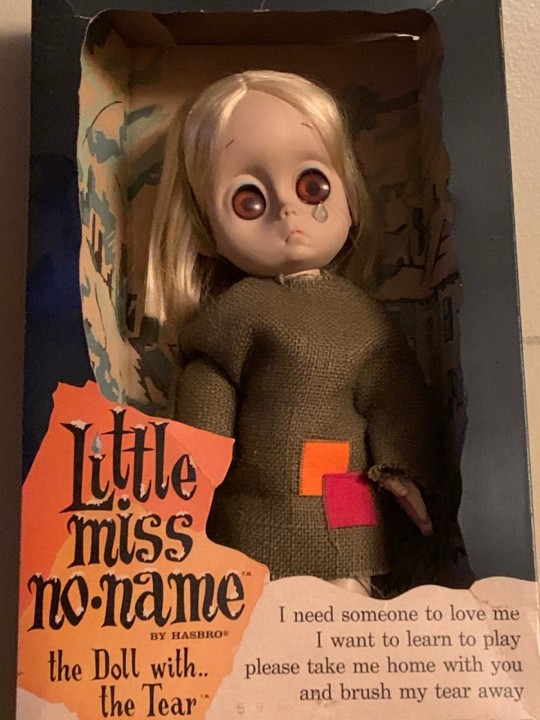
Little Miss No-Name
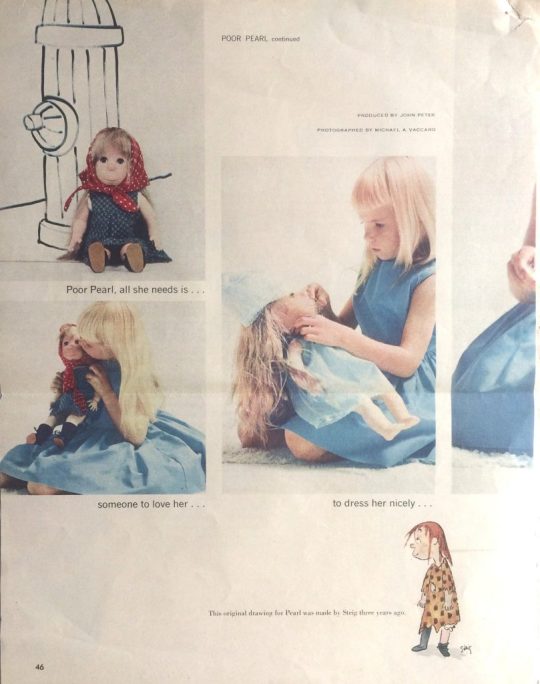
Poor, Pitiful Pearl
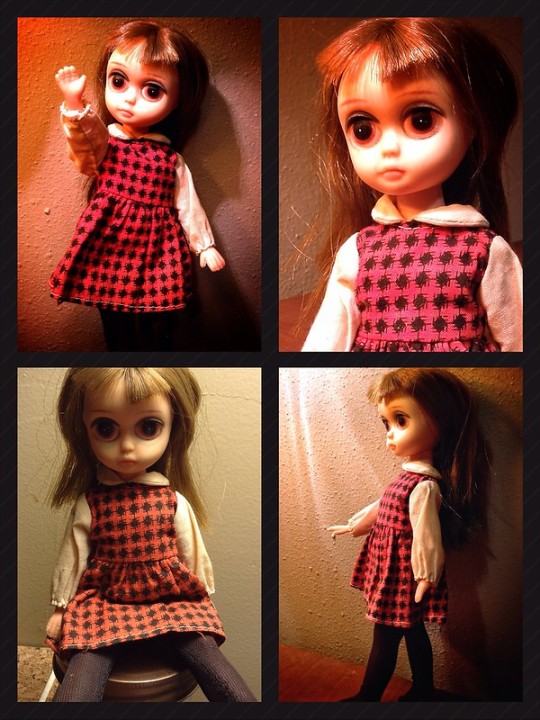
Susie Sad Eyes
---
I mean, I remember the daily siren tests back then and the generalized existential angst regarding impending nuclear exchanges with the Russians, but yikes, this is some grim stuff.
Susie and the tragically anonymous one look like Keane Kids made flesh.
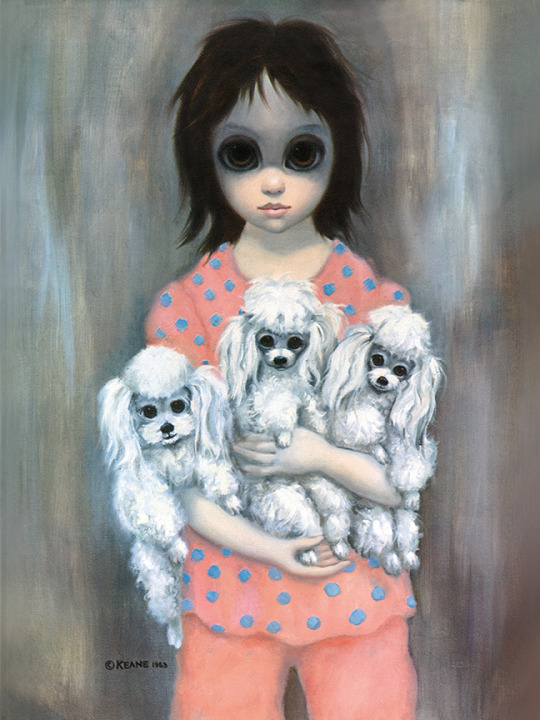
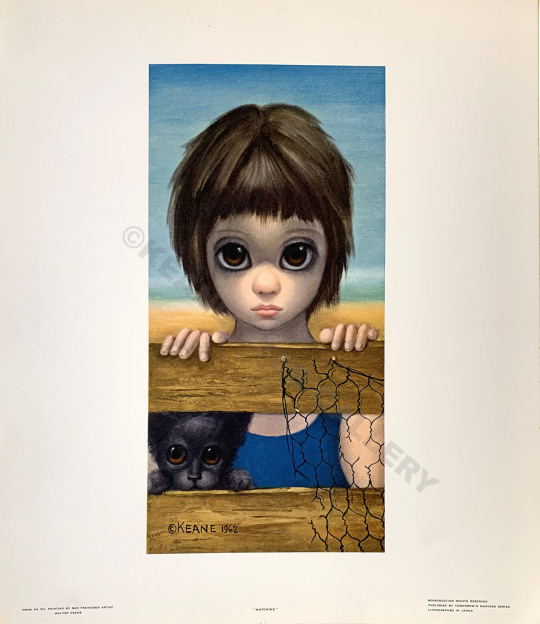
Bonus: Here's the 1965 ad for Little Miss No-Name:
youtube
#dolls#toys#little miss no-name#poor pitiful pearl#susie sad eyes#1950s#1960s#margaret keane#keane kids#existential angst#disempowerment#guilt#nightmare fuel
87 notes
·
View notes
Text
I put the Silly in
✨Existentially Anxious✨
557 notes
·
View notes
Text
Haunted Reckoning
Why do I dream in tangled threads,
these wretched echoes of the past?
Why do strange places claw at me,
why do ageless faces leer?
What do they want—release? Forgiveness?
I owe them nothing!
Ghosts can’t hurt me,
but the living—oh, they’ve done their worst.
Still, these shadows rise,
dragging their filthy chains,
scratching at my mind like vermin.
I would let them rot in their graves,
but no—they wake, they snarl,
they bare their fangs as if I called them.
What do you want from me?
I’ve bled enough. I’ve burned for my sins.
Don’t tell me this is my soul
trying to speak.
What does it know of my torment?
It whispers in riddles,
a coward hiding behind symbols and dreams.
Yes, I have wronged!
And yes, I’ve been wronged!
But must I be dragged again and again
through this endless pit of regret?
Isn’t it enough that I claw my way forward,
that I fight every goddamn day
to do what’s right?
Tell me, ghosts of my failures,
is this your justice? Is this your revenge?
If you think you can break me,
you’ve underestimated the fire in my veins.
I will not kneel before the past.
I will tear through it,
splinter it to dust,
and leave your snarling faces behind.
#poem#my post#spilled words#my poetry#my poem#poems and poetry#spilled thoughts#poetry#new poem#poetic#dark poetry#tumblr poets#poetry on tumblr#poets of tumblr#poets on tumblr#writers on tumblr#poems on tumblr#existential angst#existential philosophy#the tortured poets department
49 notes
·
View notes
Text
6:29 PM. Ate a grape, felt nothing. Googled “existential fruit.”
8 notes
·
View notes
Text
Do you ever stop whatever you're doing because a thought bullies its way into your mind? That one day you will die, and that means you will no longer exist? And then, when everyone who knew you inevitably either forgets about you or dies themselves, it will be as if you, and everything you care about, never existed? And all meaning has an expiry date?
What the fuck does it matter what happens today if we're all going to die tomorrow? Or the next day? Or the next?
Just try to have as much fun as possible I guess. Or at least try to spend as much time as possible not feeling bad. Because absolutely everything that exists, including your sorry ass and mine, goes to shit.
I'm still going to die in agonizing pain and grieving bitterly about how much of a wasted rip-off my life has been
17 notes
·
View notes
Text
the pwhl pre-season...
...is not being broadcast anywhere! 😭 Right now, my two favorite teams are playing...are they amazing? Is Frankel making numerous, impossible saves? What are the shots-on-goal looking like? Who's skating ridiculously fast? I don't know! There's no coverage! HOW AM I SUPPOSED TO LIVE LIKE THIS??
...anyway. I didn't used to be a sports guy, but then the PWHL happened. It's good, folks. If you're out there, sitting in the stands of the Victorie-Fleet game today, send word--is it amazing? Are you having the best time? Is Frankel crushing it? I will watch for your carrier pidgeon.
7 notes
·
View notes
Text
The beast.
It must be the beast out there.
The obsidian cricket of our inevitable twilight singing our requiem.
—Wirt, Over the Garden Wall
13 notes
·
View notes
Text


自分とは似ても似つかない人間にあこがれる所から人生の失敗は始まる
Failure of life:
…when you try to become someone who is not at all like you,
when you strive for what you do not stand for, aspire to become who you know you cannot be for it just does not align with your character…
you would fail even if you tried for it is not who you are nor who you are meant to be.

Poor guy, even though he was an ex-delinquent, he had his standards.
Now it's one more dark side exposed and it's good to see Child Emperor trust Genos to tell him about it. They look like they would work well together if they actually got along with mutual trust.

Look at his soft expression u.u
#opm#one punch man#opm manga#yankii#yankee#new character#existential angst#who are you#who do you want to be#genos#child emperor#hero association#sleazy#mccoy
68 notes
·
View notes
Text
The Philosophy of Escapism
The philosophy of escapism explores the human tendency to seek distraction and relief from reality, often through activities that provide temporary respite from the pressures, challenges, or monotony of everyday life. Escapism can take many forms, from engaging in entertainment, such as movies, books, or video games, to indulging in fantasies or even using substances. The philosophical examination of escapism raises questions about its ethical implications, its effects on the human condition, and its potential as a coping mechanism.
Key Concepts in the Philosophy of Escapism:
Definition of Escapism:
Seeking Relief from Reality: Escapism is generally understood as the act of diverting oneself from the realities of life, especially when those realities are unpleasant or stressful. It often involves engaging in activities that provide a temporary sense of comfort, pleasure, or detachment.
Positive and Negative Aspects: While escapism can offer a necessary and healthy break from stress, it can also lead to avoidance behavior, where individuals neglect important aspects of their lives or responsibilities.
Psychological and Existential Dimensions:
Coping Mechanism: Psychologically, escapism can serve as a coping mechanism to deal with stress, anxiety, or trauma. It allows individuals to take a mental break, which can be rejuvenating in moderation.
Existential Escapism: Philosophers like Jean-Paul Sartre and Albert Camus have explored the concept of existential escapism, where individuals avoid confronting the inherent meaninglessness or absurdity of life. In this context, escapism can be seen as a way to evade existential angst or the responsibility of authentic living.
Ethical Considerations:
Balance and Moderation: Philosophers often debate the ethical implications of escapism, particularly whether it is a morally acceptable way to deal with life's difficulties. While some argue that moderate escapism is necessary for mental health and well-being, others caution against excessive escapism that leads to neglect of one's duties or relationships.
Authenticity vs. Illusion: There is an ethical tension between living authentically—facing reality as it is—and retreating into illusion or distraction. Some philosophical traditions, such as existentialism, emphasize the importance of confronting reality and finding meaning within it, rather than escaping from it.
Cultural and Social Aspects:
Escapism in Popular Culture: Escapism is deeply embedded in popular culture, with entire industries, such as cinema, literature, and gaming, dedicated to providing forms of escape. The cultural significance of these activities raises questions about their role in society and their impact on collective consciousness.
Societal Escapism: On a broader scale, escapism can also be viewed as a societal phenomenon, where entire groups or cultures may turn to escapist practices as a way of coping with social or economic pressures. For example, during times of war or economic hardship, the popularity of escapist entertainment often increases.
Philosophical Critiques of Escapism:
Stoicism and Escapism: Stoic philosophy advocates for facing reality with courage and rationality, suggesting that escapism is a form of avoidance that prevents individuals from developing resilience and wisdom.
Existentialism: Existentialists, particularly Sartre, criticize escapism as a form of bad faith, where individuals deny their freedom and responsibility by fleeing from reality. For existentialists, true freedom comes from acknowledging and embracing the absurdity of life, rather than escaping from it.
Escapism and Art:
Art as Escape: Art has historically been a means of escape, offering individuals the opportunity to experience alternative realities, explore new perspectives, and express emotions that might be difficult to confront in everyday life.
Aesthetic Experience: Some philosophers, such as Friedrich Nietzsche, have celebrated art and aesthetic experience as a vital and life-affirming form of escapism that transcends mundane reality and offers deeper insights into the human condition.
Escapism and Technology:
Digital Escapism: In the modern era, technology has significantly expanded the possibilities for escapism. The internet, social media, virtual reality, and video games offer immersive experiences that allow individuals to escape from reality in unprecedented ways.
Virtual Reality and Ethics: The rise of virtual reality and other immersive technologies raises ethical questions about the boundaries between reality and escape, and the potential consequences of living increasingly in digital or simulated environments.
The philosophy of escapism examines the complex motivations behind the human desire to escape from reality and the various forms this escape can take. While escapism can provide necessary relief and even foster creativity, it also presents ethical and existential challenges, particularly concerning the balance between facing reality and seeking refuge from it. The ongoing philosophical exploration of escapism helps us understand its role in the human experience and its impact on our lives, both individually and collectively.
#philosophy#epistemology#knowledge#learning#education#chatgpt#ontology#metaphysics#psychology#Escapism#Existentialism#Coping Mechanism#Authenticity#Popular Culture#Ethics of Escapism#Existential Angst#Stoicism#Virtual Reality#Art and Aesthetics#Digital Escapism#Bad Faith#Illusion vs. Reality#Psychological Resilience#Cultural Phenomenon#ethics
18 notes
·
View notes
Text
--"weeping, watching the Madonna weep" inspired by chapter titles from Pictures and Tears: A History of People Who Have Cried in Front of Paintings
I stopped believing in anything-- in your tears, I see seaweed seamlessly float as colorful fish lose their scales and their bones are catching onto shipwrecks. They tried to find your treasure and failed; they took their scraps and cast lots on their survival.
But how would you survive this wretched world, oh mother of sorrows? Why do you stare at us, asking for answers when we rush around in circles trying to find something that never existed?
The knots are untied, but the conundrum is not solved. I hold a sword to sever the threads, but my palms grow clammy, and sweat builds on the hilt. You watch and tremble in your golden finery-- seven swords have already cut through your starry chest-- what would another one do other than make you remember how you cradled your son?
You and I--we're both helpless. You and I--we both watch goldfish die in our hands, but do not bear to save them, for doing so would allow amnesia to reign, mocking our heavy hearts. --Elda Mengisto
#poetry#my poetry#poets on tumblr#poetry on tumblr#Pictures and Tears: A History of People Who Have Cried in Front of Paintings#weeping watching the Madonna weep#madonna#virgin mary#our lady of sorrows#existential angst#prayer#faith#doubt#creative writing#writeblrcafe#poeticstories#writerscreed
17 notes
·
View notes
Text
In the quiet of the night, I trace the outlines of my scars, each a testament to battles fought in silence. Love, for me, is a haunting melody—beautiful yet sorrowful. I am the protagonist of a story written in shadows, seeking solace in the echoes of my own mind.
#dark academia#poetic prose#emotional detachment#trauma core#sad girl aesthetic#dark romanticism#feminine rage#obsessive love#lonely thoughts#haunting beauty#tragic poem#existential angst#melancholy mood#love and loss#soft horror#scarred#labyrinth#written in blood#solitude#painful love#gothic romance#ache#memory#darkpsychprincess#sadnees#ghost#intrusive thoughts#girl blogger#girl blogging#dark girly
4 notes
·
View notes
Text
imagine that, one night, as your child self stumbles through the dark hallway, from the bathroom back to the bedroom, you come past a dark spot on your dog's favorite pillow. in your sleepy state, you assume that dark spot is your dog, and you've half a mind to say something to it. maybe tease it about waiting for you in the hallway, because you know that up until now, it slept at the foot of your bed. but that dark spot doesn't move, doesn't trot past you like your dog would, so you assume your eyes are just playing tricks on your mind. so you continue on to your bedroom, slip back under the blanket, and with that nonchalant sense of wonder - mild curiosity, some would call it - you realise that you didn't feel fear. that is strange, because in the past, crossing the dark hallway at night would leave you just a little scared. not tonight, though. how strange, you think before falling asleep again.
when you wake up the next morning, your dog's already out and about - maybe dad took him for an early walk. dad always does that when something's up with mom. you're up anyway, and if dad's out with the dog, maybe you can watch your cartoons in peace. so you crawl out of bed in nothing but your pyjamas, cross the hallway, and out of the corner of your eyes, there's that dark spot on your dog's pillow again. how strange, you think, as you walk past it without much further thought. maybe the early morning light's just being weird.
you settle down on the couch, zap through the various channels before you get to the one with the funny cartoons. your favorite show's on, and the time just flies by. it's a lazy sunday morning, and no one seems to mind you being up yet, not even mom, and dad's still not back from walking the dog, so you decide to treat yourself to a bowl of cereals with milk. you cross the hallway again, and there's still that dark spot on your dog's pillow. how strange, you think, because now it seems to have grown bigger. you pause for a moment, and the dark spot seems to move slightly. maybe it's trembling. no, dark spots don't tremble. they don't even move. or shouldn't, at least. you watch it a few moments longer, but then your growling stomach reminds you that you wanted to grab a bowl of cereal.
you while the day away in front of the tv. dad still hasn't returned with your dog. maybe they're hiking. and mum still isn't up yet. or maybe she is and just left the house early. she does that sometimes when things aren't right. and things haven't been right lately. well, for a long time, really.
when you cross the hallway again to use the bathroom, the dark spot's now claimed the entirety of your dog's pillow. how strange, you think as you kneel down to take a better look at it. it's grown, it's strange, you're alone at home, and yet you're not afraid of it. something about it feels alive. like a dog feels alive when it's asleep at the foot of your bed. you can't see it in the dark, but you know it's there, and you know it's alive. sometimes you have to touch your dog to remind yourself it's still there, still alive - and that's what you do with the dark spot now, too. you reach out to touch it, and you don't really know what you expected it to feel like - but it's warm and cold at the same time, hard and soft, smooth and rough. how strange, you think. there's this strange spot and you're still not afraid. you used to be afraid of many things. maybe you're finally growing up.
it's been years since dad left to walk the dog, and you don't remember when you last saw mom. you don't even know whether any of them were real to begin with - all you know is that the dark spot on your dog's pillow has grown, way past the pillow's borders, and it's now almost spilling into your bedroom. you still sleep in your old kiddie bed, even though you're now much too tall for it. it's just what you do. sometimes you sleep in the hallway though, right on - or is it in? - that dark spot. it's where you feel most at home, strangely enough. you're in the house you grew up in, but your bed feels like a stranger to you - the spot does not. and now, as you're once again sitting in front of the tv, watching your cartoons, you realize that you don't even know what fear feels like anymore, or when you last felt it. most kids probably would've felt intense fear when their dad didn't return from a walk with their beloved dog, or when mom wouldn't trudge past you, barely acknowledging you before her first coffee. how strange, you think, as you realize that you don't even know what feeling anything at all even feels like.
#writing#late-night writing#rough draft#unpolished af#fiction#prose#writers of tumblr#mild horror#existential angst#this is probably a reference to something#idk what though#it's 11 pm and this just popped into my head#do with that what you will
3 notes
·
View notes
Text
65 - A Pocket Full Of Smoke
My hands pass through the ghost you left behind; Memories of a smile that ne'er was mine, Clinging to my fur like a bad habit Or ill-fitting clothes. A musty nostalgia For a home now lost, a heart turned to stone; There's a chill in my soul now I'm alone.
Is it too much to ask for one last touch As a memento, proof that we were real? Oh woe! Scour my heart and make me unfeel The exquisite scars left by your embrace! Wipe clean the tears I left upon your face; Grant me grace to turn from your loving gaze!
I suppose I should send you on your way; And yet my fingers refuse to unfurl From betwixt the curling, coiling vapour Of your dear-departed breath. Here you stay; My lungs full of the smoke left in your wake, As warm as the promise you had to break.
A shadow can't cradle you as you cry And a flame trapped in sable can't survive. So leave me and my ersatz love behind And I'll remember how it used to feel; The promise in the soft light of your eyes That a dream could dare to dream it were real.
______________________________
The Dark Menagerie No. 65
<-<-First || <-Prev || Next-> || Index
#Writing#patchworkwrites#poetry#fiction#Fanfiction#Drabble#Deltarune#Ralsei#Kris Dreemurr#platonic/romantic#Kralsei#Krisei#Angst#existential angst#heartbreak#loss#Not sure where the title came from but I think it fits#Memory can be a bit like smoke sometimes#lingering no matter how we try to get rid of it#Seeping into our clothes and everything it touches#Of course it also speaks to Ralsei's own fleeting existence#Not only as a servant of the light but also as a being designed only to please#In a way he's even less real than the memories he holds#A memory mourning a memory... oddly poetic don't you think?#The Dark Menagerie
10 notes
·
View notes
Text
Someone explain to me why I can only hear the answers I need when my kids are asking the questions. A recent bedtime:
Secondus: Mama, I'm depressed and I don't know why. I feel as though there's something I want to do but I haven't done it yet. Me: Sweetpea, that's very common, but know this - tomorrow will be soon enough, both to figure out what it is you want to do, and to do it. Now go to sleep. Secondus: Ok, Mama. Primus: Mama, I'm depressed and I kind of know why. I feel like little things don't make me as happy as they used to. Me: Ah, yes, that's normal. You know how when you're little, your body needs less food because you're littler, but when you get bigger, it needs more food? Well, your brain is now bigger, so it needs more. Primus: Oh. Secondus: (clearly disappointed) Aww... Me: It's ok. Your brain being bigger means that you're also better set up to find the bigger things to give you joy. We'll work on that together.
Meanwhile, fireworks are going off in my head. Your brain is bigger, so it needs more, that's why you're not as happy as you used to be. Tomorrow will be soon enough to figure it out. These are the answers I've been looking for for DECADES! Have they been here all this time, inaccessible until my offspring were capable of expressing existential angst? What the hell is going on in the three pounds of fatty tissue I carry in my skull?
OMFG, I've become Arthur Dent.
#WTAF#existential angst#the first person who says 'the answer was inside of you all long' is getting smacked upside the head#which will probably shake something loose that'll blow their minds#because that's how brains work#arthur dent#hitchhiker's guide to the galaxy#pearls gone wild#douglas adams knew all along#seriously wtaf#is this why talk therapy works?#parenting#parents of tumblr
2 notes
·
View notes
Text
The Opposite Side of The Bed
I lay on the opposite side of the same bed,
On the opposite side of the same country,
Looking into a completely different style window to the one I used to have.
I see trees from my window,
I never used to be able to.
I'm painfully aware of how fast time passes,
But so blind as to when it is passing.
One day, I'll be dead,
And these will just be thoughts,
That were inside of my head.
Do my grandchildren care,
That their grandmother thinks,
Blinks,
Never drinks,
Sinks into a lukewarm bath,
Because she cannot tolerate the heat nor the cold?
And one day I'll be dead,
No longer just old;
No longer lying on the opposite side of the bed.
#existentialism#existence#existential dread#existential crisis#existential thoughts#existential poetry#existential angst#poetry#poems and poetry#poems on tumblr#my poem#original poem#sad poem#poem#poems and quotes#autism#autistic experiences#actually autistic#autistic things#the future#writers and poets#poetic#poets on tumblr#poetblr#poets corner#poetsandwriters#female poets
3 notes
·
View notes
Text
Okay so my first post is going to be about the link between capitalism and existential angst, which is the most on brand thing possible for me, so if you like this there’ll be much more of it and if not… sorry. 😅
I’ve always had a proclivity for angsty existentialism. Multiple times a housemate has found me sprawled on a sofa moping about the meaning of life which sounds really pretentious but idk I feel like on some level that’s just being a student. And it’s that material side of it that’s got me curious recently like - were these anxieties just a result of the kind of individualistic, listless existence a student inhabits? There’s probably a reason the stereotypes of angst are people with enough wealth to avoid work but not enough respect or expectations to have a solid idea about what they should be doing: Percy Shelley, Lord Byron, Søren Kierkegaard, etc.
In the first volume of his Critique of Everyday Life, Henri Lefebvre calls out Kierkegaard specifically as a prime example of bourgeoise alienation, the result of which was literally creating existentialist philosophy - the idea that we have to create meaning for ourselves by force of will and taking a leap of faith. Lefebvre claims that existential angst is always a result of some sort of alienation. When Marx formulated alienation as the psychological suffering we experience when we are separation from ourselves, each other, the products of our labour, and nature, he was thinking about the way the working class are made to suffer under capitalism, but Lefebvre expands the theory beyond this. He describes how alienation is always relative and present in all types of society for all people within it. Alienation is not just a result of individualism and exploitation - it also presents itself when we feel too far from someone we love, and when we are mystified by the natural world. Crucially, we are alienated when we become detached from the fact that we are dependent on others for our survival, something common to all the bourgeoisie.
Acknowledging this dependency would make us aware of the injustice of how these responsibilities are distributed (according to class, gender, race, etc.), and getting past the separation would require a radical change in lifestyle involving the rejection of the serving of the individual self so integral to bourgeoise morality. It’s hard! But with the lines between proletariat and bourgeoisie becoming more and more blurred with the expansion of the middle class, recognising this particularly bourgeoise suffering is important, I think, if we want to articulate a reason more people can get behind to resist capitalism.
People suffer when they’re separated from people, when their material existence feels so isolated and insignificant that they have to rely on spirituality to give them any sense of grounding, but are unable to be confident in their beliefs so can only ever relate to religion through anxiety (both my best friends speak of religion in this way, and before I read Lefebvre I was tempted to join them because it sounded better than the nihilism I was struggling with). Seriously, read any Kierkegaard and you will know he was not a happy guy. He wrote book called The Concept of Anxiety, and Fear and Trembling for God’s sake. He’s not okay! 🥺 But poor Søren might have been okay if he’d been a bit less self obsessed, acknowledged the value of *inter*subjectivity rather than pure responsibility, and actually married his fianceé rather than worrying about his independent morality, which was really just arrogance. I sound mean but I love him really. He’s very entertaining and *painfully* relatable.
But this is why I find Simone de Beauvoir to be the absolute best of the existentialist canon, because she recognises the need for recognition and connection, even for the powerful. In The Ethics of Ambiguity, she writes about how even tyrants suffer in hierarchical societies because they can never know authentic respect, since people always see their power and the threat implicit in it rather than their whole humanity. This doesn’t mean that we should never violently resist tyranny, because individualism is hard to overcome, even when it’s self-sabotaging, but awareness of this could get more people on the side of equality. This idea is apparently supported empirically in The Spirit Level, by Richard Wilkinson and Kate Pickett, but I haven’t read that one yet. I like to put it in Spinozist terms: the satisfaction of one desire can be excessive when it blinds us to our other needs and presents us from feeling other forms of joy.
On how it can be overcome though, I think Judith Butler offers an interesting frame for thinking about it. Though they’re best known for their work on the social construction of gender, my favourite book of theirs is Giving An Account of Oneself, where they write about how our mental life is a product of all our previous experiences, especially with other people. This seems obvious on some level, but it really undermines individualism. In particular, it deconstructs the distinction between attacking parts of yourself and attacking other people. If our internal and external lives are so interlinked, is it really surprising if attacking ourselves isolates us? Recognising that other people are in some sense present within us is conducive to greater intimacy, and though this can be uncomfortable if we dislike part of them, that doesn’t make it less true, and recognising this can make us more compassionate with everything within us. Self-hatred and hatred of others are intimately connected, and they reinforce each other.
I like to think of the relationship between different parts of myself in terms of Deleuze and Guattari’s machinic unconscious, where our minds are made up of interlocking parts from the larger social context. I think differ though in wanting to negotiate and find equilibrium between them rather than experimenting by letting certain parts go to extremes to make change though. I like the way Jacques Derrida writes about it in The Politics of Friendship, where to recognise the other in oneself, and so recognise the misalignment within ourselves, requires us to be a friend to oneself, which makes friendship so central that it undercuts any potential narcissism because by loving oneself as an other we learn to love others better (as well ourselves).
This doesn’t address the concrete politics of the situation though. The aspect missing is that we have to think of ourselves as inextricably linked to our social and political systems, part of a historical process, and our feelings about those systems are a very real part of that process, and if we want to be true to ourselves we have to act on those feelings rather than repress them. I’m still working out what that means for myself, and as Lefebvre notes it’s this final hurdle that most people fail at, but we can all try.
That kind of went all over the place, but hopefully it’s understandable and valuable, and if not it was helpful for me to articulate all these ideas that have been swirling around in my head for the past year or so. 😅
#existential angst#existentialism#marx#karl marx#henri lefebvre#simone de beauvoir#judith butler#soren kierkegaard#alienation#interdependence#individualism#deleuze and guattari#gilles deleuze#derrida#jacques derrida#deleuze#capitalism#bourgeoisie#communism#anarchism#spinoza#psychoanalysis#politics#social theory#sociology#philosophy
44 notes
·
View notes